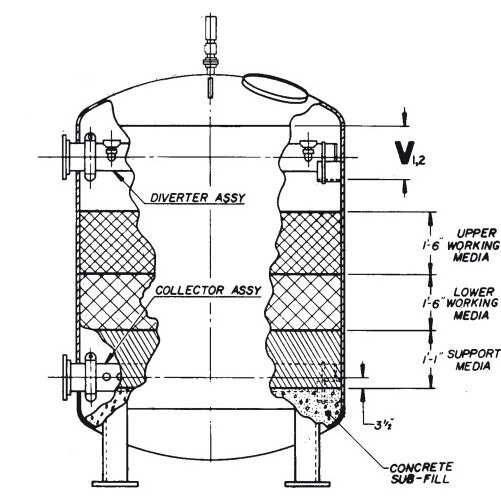Sand filters, widely used as water treatment equipment in fields such as households, industries, and commercial sectors, are highly favored for their filtration efficiency and durability. However, determining their suitability for specific needs requires a comprehensive consideration of their characteristics and applications. This article discusses the advantages, disadvantages, and applicable scenarios of sand filters to help you better understand their practical utility.

Advantages of Sand Filters
Sand filters offer several advantages in water treatment and purification processes. Here are some of the key advantages:
- Excellent Filtration Effectiveness: Sand filters effectively remove suspended particles, sediment, rust, and other impurities from water, improving its clarity and transparency. With high filtration precision, they can filter out even the smallest particles, providing clear and pure water sources for applications demanding high water quality such as swimming pools, drinking water, and industrial water.
- Strong Durability: Compared to other filtration equipment, sand filters exhibit higher durability. Quartz sand, being a hard and wear-resistant material, can withstand high pressure and frequent usage without easy damage. This durability ensures that the filter maintains good filtration performance over prolonged periods, reducing the frequency of equipment maintenance and replacement and saving on maintenance costs.
- Simple Operation: Sand filters are relatively easy to operate and maintain. They do not require complex operational procedures; regular cleaning and maintenance of the filter media are sufficient. Cleaning can be done through backwashing, flushing away accumulated contaminants on the sand, restoring its filtration capability. This simplicity makes maintenance of sand filters convenient and cost-effective.
Disadvantages of Sand Filters
While sand filters offer several advantages, they also have some disadvantages, which include:
- Limited Filtration Effectiveness for Some Materials: Sand filters exhibit relatively poor filtration effectiveness against dissolved salts, heavy metals, bacteria, viruses, and other microorganisms present in water. In such cases, supplementary water treatment methods may be necessary to achieve comprehensive purification.
- Slow Filtration Rate: Due to the structure and filtration principle of sand filters, water passes through the filter media at a relatively slow pace, requiring an extended period to complete the filtration process. This may not be suitable for applications requiring high water usage or demanding high flow rates.
In summary, sand filters offer advantages such as excellent filtration effectiveness, strong durability, and ease of operation, providing clear and pure water sources in a wide range of applicable scenarios. However, when deciding whether to use sand filters, factors such as water quality, filtration requirements, flow rate demands, and economic costs need to be carefully considered to determine their suitability for specific practical needs.
